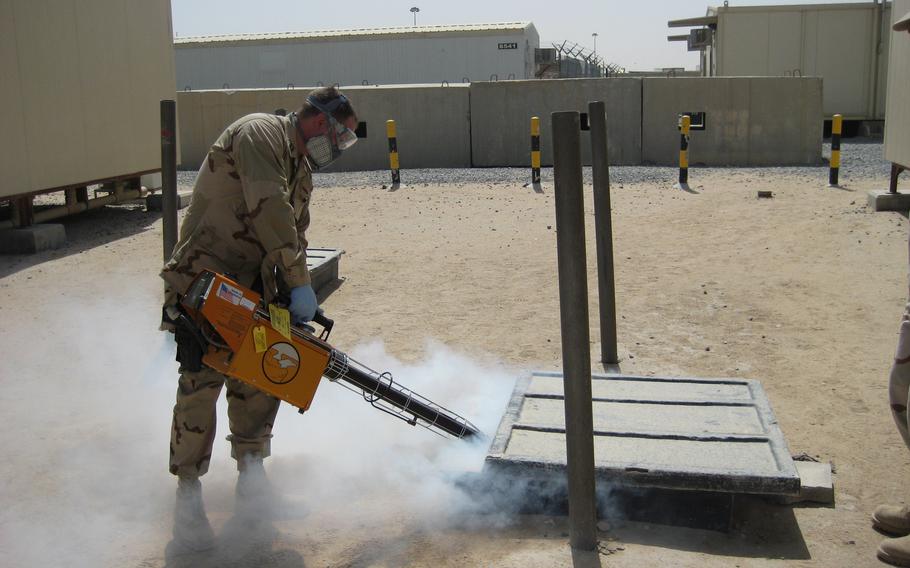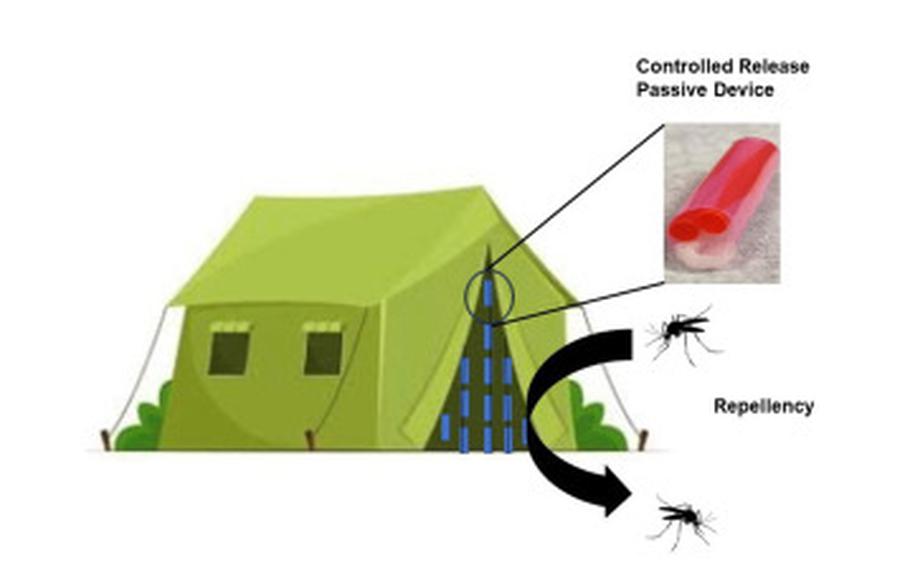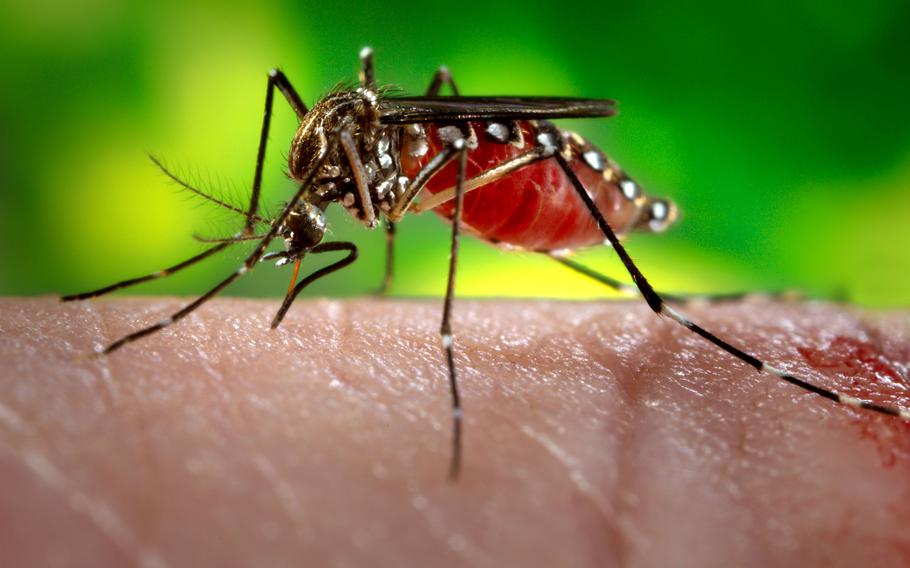
In this 2010 photo, Navy Lt. Michael Fisher sprays mosquito repellent at Camp Buehring in Kuwait. Now, scientists at the University of Florida have developed a device for the military that can keep mosquitoes at bay for a month. (U.S. Navy)
American troops may be better-protected in the field from the ravages of mosquitoes thanks to some Gator aid.
Scientists at the University of Florida developed a device for the military that can ward off the insects for an entire month.
The device is a plastic tube about an inch long that slowly releases transfluthrin, a bug repellent that the Florida research team said is safe.
“It doesn’t stop with mosquitoes,” researcher Nagarajan Rajagopal said in a university statement last week. “We want to show that it will work with other insects, especially ticks, which pose a threat by causing Lyme disease.”
The research was funded by a grant from the Pentagon’s Deployed Warfighter Protection program.
The military spends millions of dollars to protect troops from mosquito-borne diseases such as malaria, dengue virus, Zika and the West Nile virus.
New and improved solutions are needed because the list of safe and cost-effective bug killers is shrinking, a government website on the Deployed Warfighter Protection program said.

University of Florida researchers developed a bug-repellent device for the U.S. military. Containing a substance called transfluthrin, it is hung from the entrance of a tent. (University of Florida)
The Florida research team wanted a device that doesn’t spray pesticide across an open area because dispersal poses a contamination risk to surrounding plants or bodies of water.
Over four weeks in 2021, they placed 70 tubes attached to fishing line at the opening of a large military tent, said a paper published in the January issue of Current Research in Parasitology and Vector-Borne Diseases.
They then released mosquitoes around the tent and measured how many entered.
The transfluthrin is a “heavier-than-air molecule” that was slowly dispensed from the devices to permeate the tent, the study’s authors said.
It “created a protected space where mosquito numbers were greatly reduced and minimized or eliminated,” the scientists wrote, adding that the few mosquitoes that made it into the tent were unable to fly and thus were easily captured.
Future research will investigate whether the product would protect a space from mosquitoes for up to three months, Rajagopal said in the University of Florida statement.
U.S. Department of Agriculture scientists involved in the study believe the work can help military personnel and civilians alike.
The device “has potential for other applications, including for hiking and fishing,” Daniel Kline, a research entomologist for the agency, said in the statement.

Scientists at the University of Florida have developed a device for the military that is hung from the entrance of a tent and can ward off mosquitoes for a month. (U.S. Navy)